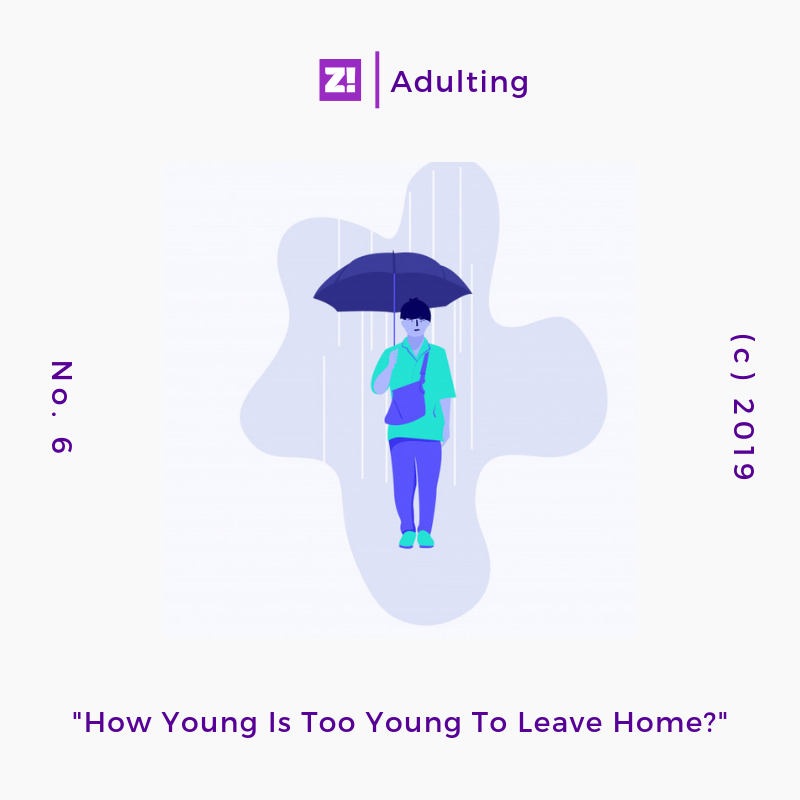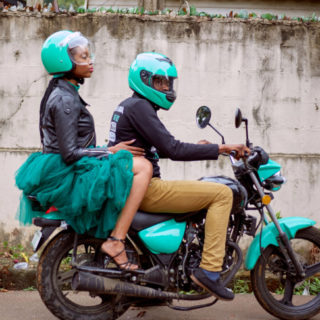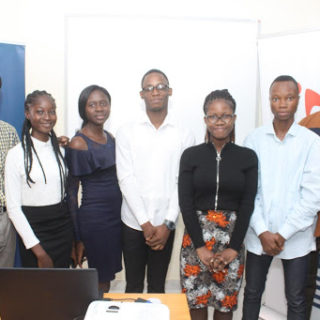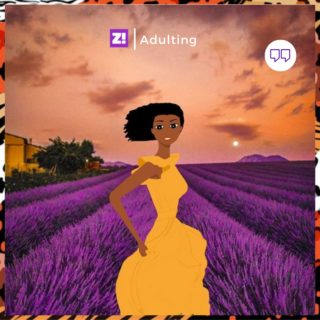In certain cultures, adulting is marked with rituals, tests and celebrations. But when you’re Nigerian, adulting often comes at you without warning. It comes in different forms; bills, family, responsibility, and you guessed it, kids.
Everyone who’s crossed either of those bridges has a unique story. A story that can help you see you’re not alone. That’s why every Thursday, we’ll bring you one Nigerian’s journey to adulthood, the moment it kicked off and how it shaped them.
The question we’ve been asking is, “When did you realise you were an adult?”
The guy in this story is “23 going on 24”. He makes videos for a living. For his age, he’s not doing bad – most people would kill for a good job, side gigs and a place of their own in these Buhari times. Unfortunately, his journey to this point hasn’t been as simple as the math would suggest. If there’s one thing he will never be accused of, it’s waiting for life to happen to him.

The one thing I always wanted to do growing up was leave home. As a kid, holidays were the only aspect of my life I looked forward to. I didn’t hate school, I never languished at the bottom of my class and the highest I ever came was third position. In primary school, I was punctuality prefect for some reason. I was an okay student. I could say the same about my family.
I grew up the first of three kids in a corner of Iyana-Ipaja, a far-flung area of Lagos. My family was ‘the normal, average family’. They had enough to afford the necessities and a safety net – we ate well, went to school and wore good clothes – but we weren’t rich. My mother, a teacher, often reminded us to be content and make the most of what we had. These lessons are still with me today.
In a way though, that was the problem: I was not content. Every school holiday, from primary school till my late teens, I visited my mother’s family house in Somolu. I spent most of my time there with one particular friend, every holiday. We chased excitement, new experiences and the kinds of high that bored, young boys crave. That freedom was everything.
It felt like my regular life had become too mundane, too predictable. Somolu was important because it was alive. Iyana-Ipaja wasn’t; It was filled with memories I’d rather forget.
My dad likes women, a lot. Chronically, even. When I was much younger, he dropped me off at school everyday. It would be just two of us in the car – me and him in the front seats. We’d drive down a few streets before he would ask me to move to the back seat. The front seat was for the woman joining us on that day’s ride. There were many of them. So many that it was hard for him to keep it under wraps. He brought these affairs very close to home several times; so close that my mother knew about them. Our neighbours were aware. Fam, he even did it with people in the compound. One time, he had a fling with a married woman whose husband didn’t let it go till he told the entire neighbourhood. Another time, his fling’s spouse got the police involved.
I think I was around 14 when I first asked my mother why she was staying through all of it. Why was she letting him do this to her? She would nag and sometimes, he’d come home crying in remorse, but nothing changed. Him still dey do am till today. I haven’t stopped asking her.

Holidays at Somolu continued to be the only bright light. We never went out, never travelled; we lived a perfectly boring life. By the time I was rounding off secondary at 15, I didn’t want to go back home anymore. So I didn’t.
Fresh out of secondary school, I lingered in Somolu while I wrote JAMB and tried to get into UNILAG. The best part though was learning design from my aunt. She’s a photographer who started showing me basic stuff early on. From there, I found myself in a design program at a branch of the Mountain of Fire And Miracles Church (MFM). It was the first time I felt good. It sounds corny but I felt like I’d found my tribe.
Around this time, in 2012, my parents moved to Magboro, a small community along Lagos-Ibadan Expressway. If Iyana-Ipaja was boring, this place was dead. So dead that they didn’t have light. My dad had lost his job abruptly. He gathered his pension and moved the family into his house there. It wasn’t in its final form. I didn’t always go there. I was 17 and practically living with my grandma in Somolu by then. My mum had to call to get me to visit.
That I left home after secondary school is something that my dad often says he regrets. Of all my siblings, my mother says she’s least closest to me. We don’t talk the way she does with my siblings. We just can’t. We didn’t have the time to build that relationship.
I had this Uncle who lived in London when I was in my early teens. Brother Kunle. He’s the only one on my mother’s side who didn’t go to university. But every time he came home, he had goody bags for everyone. He was the one who managed to build a home for his parents as well. I always assumed he was balling, even without going to school. The details mattered little to me; I just wanted to be that guy.
In 2013/2014, I got accepted into UNILAG to study Industrial Relations. I hated it from the first class. After a couple of months, it was obvious something was wrong. I couldn’t will myself to attend lectures; I skipped school for months. That first year, I flunked like crazy. Everyone, including my parents, was at a loss as to why. I was too. The second year was a bit better but I knew it wasn’t working. So I dropped out.

I told my parents a week after it happened. They were understandably upset, but what was done, was done. I had put my life solely in my own hands now, my dad made that clear. I spent the rest of that year – 2017 – trying to come to terms with that. That meant meeting everyone that I looked up to, asking questions and trying to make sense of my decision. All of that talking helped me realise that I just needed to put my head down and work. I did.
I don’t know if I left home too early. My mum complains about the divide between us and it feels familiar: I’ve been accused of not being able to stay in touch by some of my best friends. After we had spent a year together, an ex-girlfriend told me that I was incapable of love. Thinking about it still hurts. I know I struggle with maintaining relationships. Sometimes it’s deliberate, but more often than not, I just lose track.
I’ve spent the last few years figuring things out. I won’t say I have, I don’t think anyone ever really does. But for my age, I’m not doing too bad. What started as a small hobby led me to form a three-man group with some of my friends from the church. We lived off lucrative web design gigs for a while. Sometimes, we’d get as much as 3000 dollars for one job. I moved to a place of my own in 2018, and since then, I’ve found more stability in life and my career. Unfortunately, old wounds are still open.
I know I suppress certain memories – like leaving school and certain parts of my childhood but for the life of me, I can’t tell why. For everyone who I’ve flaked on, there are a hundred others who swear that I’m the most caring friend they ever had. You can never see yourself as objectively as the people in your life do. Behind all my inconsistencies is a chronic desire to please the people I care about. I need to give more to them than I take. Maybe that’s why I left home – not because we were sad, but because we weren’t happy. And I couldn’t do anything about it.
I have no regrets. Things could have turned out differently, but if it counts for anything, I’m doing what makes me happy. I never let my siblings breathe when it comes to their education. And I support when I can – like giving my younger brother 100k to kick off his fishery business.
I still can’t shake the feeling that I’m not doing enough. If I met a younger me, I’d ask him to not procrastinate – to break everything and keep moving. Maybe I’d be more fulfilled if I had moved that way. Maybe not. As things are, I have zero regrets.




